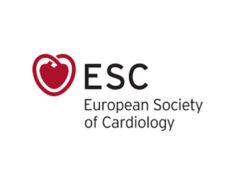
The European Heart Academy of the European Society of Cardiology (ESC), the European Heart Rhythm Association (EHRA) and the Maastricht University Medical Centre are launching the European Diploma of Advanced Studies in Cardiac Arrhythmia Management (DAS-CAM). A combined component of health economics, biostatistics and leadership make of this new postgraduate programme a unique platform to train the “future leaders” in cardiac arrhythmia management. Cardiac Rhythm News spoke to DAS-CAM programme director Harry JGM Crijns (professor and chair of Cardiology, Maastricht University Medical Centre, The Netherlands) about the details of this course, which is due to start in January 2017.
What is the need to develop a postgraduate programme of this kind?
There is a relative lack of courses in the field of cardiology that specifically focus on the state of the art in cardiac arrhythmia management. The courses that do exist do not include the interwoven content (health economics, biostatistics and leadership) that is present in the DAS-CAM programme. We believe the combination of hard content and soft skills will be critical for the development of future leaders in the field.
Although several general leadership programmes are available, these are not targeted to the specific challenges of medical specialists in the field of cardiology in general, or cardiac arrhythmia management in particular. In addition to a highly dynamic clinical and scientific environment, there is generally a complex set of stakeholders in the cardiac arrhythmia management field. The DAS-CAM programme will provide these missing leadership components through a synergistic combination of dedicated leadership training, with the real-life examples from high-profile leaders in the field acting as anchor persons or lecturers in the various modules.
What areas will be covered in the programme?
The programme will train clinical cardiac electrophysiologists in cutting-edge cardiac arrhythmology from mechanisms and ECG reading to novel and complex interventions for atrial fibrillation and ventricular tachycardia, as well as defibrillation and electrical management of heart failure and sudden arrhythmic death. Students will also learn about regulatory and societal dimensions of arrhythmia management, the organisation of an arrhythmia unit, leadership development, cardiovascular biostatistics, health economics, guideline implementation and future trends in arrhythmia management.
Could you tell us about the structure of the programme?
The course is designed as an executive programme of eight modules over two years. The format includes a preparatory phase (approximately 60 hours, self-learning), an intensive 32 hours in-person training (Saturday afternoon until Wednesday afternoon) and evaluation phase (20 hours). The format of the course comprises, among others, small-group teaching, lectures, hands-on training, team projects and interaction with European leaders in their field. The in-person training primarily takes place in Maastricht and Brussels.
What key competences will be gained at the end of the course?
Students will gain extensive knowledge and insight of the diagnosis, mechanisms and therapy of cardiac arrhythmias. They will also acquire transferrable skills from insight to execution to coordinate scientific research projects and will be given the tools to develop presentation skills, including presentation of complex cases. Participants are expected to gain a critical appraisal of epidemiological basis of arrhythmia management and to assess health technology as a basis for cost-effective care. Students will also have the opportunity to acquire or improve their management and leadership skills for the organisation of an arrhythmia unit; they will become aware of the different roles in European regulatory, assessment and evaluation bodies and how to take on advisory roles in national or international organisations.
Who can apply?
Clinical cardiac electrophysiologists with the ambition to improve their knowledge and skills in order to become leading professionals in clinical cardiac electrophysiology.
Applicants should have:
- Experience as a clinical cardiac electrophysiologist, holding EHRA certification or with sufficient experience to be eligible to take the EHRA EP exams
- Willingness to contribute to innovation in the field of cardiac arrhythmia management
- A demonstrable scientific interest
- Experience with executive responsibility
- Leadership characteristics
- Proficiency in English
- Skills as active learners and team workers
- Willingness to commit the time required for both e-learning and in-person training
The application deadline is 10 October 2016. For more information visit: www.dascam.org.









